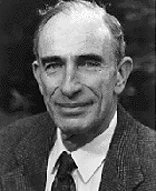 The World Ecology Award was presented to Dr. Paul Ehrlich on October 15, 1993 by Dr. Peter Raven, Director, Missouri Botanical Garden at a gala dinner held at the Lakeside Café, Saint Louis Zoo. Paul Ralph Ehrlich was born in Philadelphia, Pennsylvania on May 29, 1932. During his childhood his family moved to Maplewood, New Jersey, where, as he has recalled, he "grew up chasing butterflies and dissecting frogs." Ehrlich took a B.A. degree in zoology at the University of Pennsylvania, in 1953, and M.A. and Ph.D. degrees at the University of Kansas, in 1955 and 1957 respectively. In field work during his years of study he participated in surveys of biting flies on the Bering Sea and of insects in the Canadian Arctic. He worked at the University of Kansas and the Chicago Academy of Sciences, investigating the genetics and behavior of parasitic mites on a fellowship from the National Institutes of Health. He joined the faculty of Stanford University as an assistant professor of biology in 1959, became an associate professor in 1962, and was promoted to full professor of biology in 1966.
The World Ecology Award was presented to Dr. Paul Ehrlich on October 15, 1993 by Dr. Peter Raven, Director, Missouri Botanical Garden at a gala dinner held at the Lakeside Café, Saint Louis Zoo. Paul Ralph Ehrlich was born in Philadelphia, Pennsylvania on May 29, 1932. During his childhood his family moved to Maplewood, New Jersey, where, as he has recalled, he "grew up chasing butterflies and dissecting frogs." Ehrlich took a B.A. degree in zoology at the University of Pennsylvania, in 1953, and M.A. and Ph.D. degrees at the University of Kansas, in 1955 and 1957 respectively. In field work during his years of study he participated in surveys of biting flies on the Bering Sea and of insects in the Canadian Arctic. He worked at the University of Kansas and the Chicago Academy of Sciences, investigating the genetics and behavior of parasitic mites on a fellowship from the National Institutes of Health. He joined the faculty of Stanford University as an assistant professor of biology in 1959, became an associate professor in 1962, and was promoted to full professor of biology in 1966.
Ehrlich wrote the handbook How to Know the Butterflies (William C. Brown, 1960), illustrated by his wife, and the textbook Process of Evolution (McGraw, 1963) with Richard W. Holm. In the 1960's, as now, most of Ehrlich's field work with insects was done in Stanford's Jasper Ridge Biological Experimental Area and in the Rocky Mountain Biological Laboratory at Crested Butte, Colorado. One of his favorite projects remains the control of butterfly caterpillars with ants, a natural enemy, rather than with pesticides. He has also worked in Africa, Alaska, Mexico, Australia, South Pacific islands and South-East Asia.
In an article published in New Scientist in December 1967 and reprinted in the Washington Post (March 10, 1968), Ehrlich asserted that the battle to feed humanity is over and predicted that somewhere between 1970 and 1985 the world will undergo vast famines. At the suggestion of David Brower, then executive director of the Sierra Club, Ehrlich distilled the substance of his lectures and articles on the population explosion in The Population Bomb (Sierra Club-Ballantine Books, 1968). In the prologue to that book he wrote: "Dramatic programs to 'stretch' the carrying capacity of the earth by increasing food production ... will only provide a stay of execution unless they are accompanied by determined and successful efforts at population control. Ehrlich pointed out that the doubling time of the human population of the world has been decreasing at an accelerating rate. It took until 1850 for the population to reach one billion. During the next eighty years, by 1930, it doubled to two billion. The next doubling, to four billion, was predicted to occur by 1975. In the final chapter, Ehrlich considered the possibility that he might be wrong in his bleak predictions. "If I'm right, we will save the world. If I'm wrong, people will still be better fed, better housed, and happier, thanks to our efforts."
Ehrlich has written numerous scientific papers, on such subjects as crowding in human populations, the relation of population pressures to socio-political events, plant-herbivore co-evolution, butterfly evolution and morpho-taxonomy, theoretical aspects of population biology, and selective changes in natural populations of water snakes. He co-authored with his wife Population, Resources; Environments- Issues in Human Ecology (W.H. Freeman, 1970) and Betrayal of Science and Reason: How Anti-Environment Rhetoric Threatens Our Future (Island Press, 1998). This recent book discusses predictions made in his earlier papers and books and re-affirms his stand on issues relating to human population growth, natural resource use and environmental degradation.
Ehrlich is an associate of the Center for the Study of Democratic Institutions, a member of the executive council of the Lepidopterists Society, a fellow of the California Academy of Sciences, vice-president of the Society for the Study of Evolution, and a member of the editorial boards of Systematic Zoology and the International Journal of Environmental Science. He is a founder and the president of Zero Population Growth Inc., a political action organization.
Paul Ralph Ehrlich and the former Anne Fitzhugh Howland, a biological research assistant were married on December 18, 1954. The Ehrlichs have one child, a daughter, Lisa Marie.